@danapeer.bsky.social
We had many hundreds of applications for that position... Sorry
August 12, 2025 at 9:09 PM
We had many hundreds of applications for that position... Sorry
12) In summary P53 is a guardian of plasticity. Its loss loss promotes malignant progression by enabling epithelial plasticity and immune evasion. p53 activation or KRAS inhibition removes progenitor cells and dismantles their tumor-like niche.
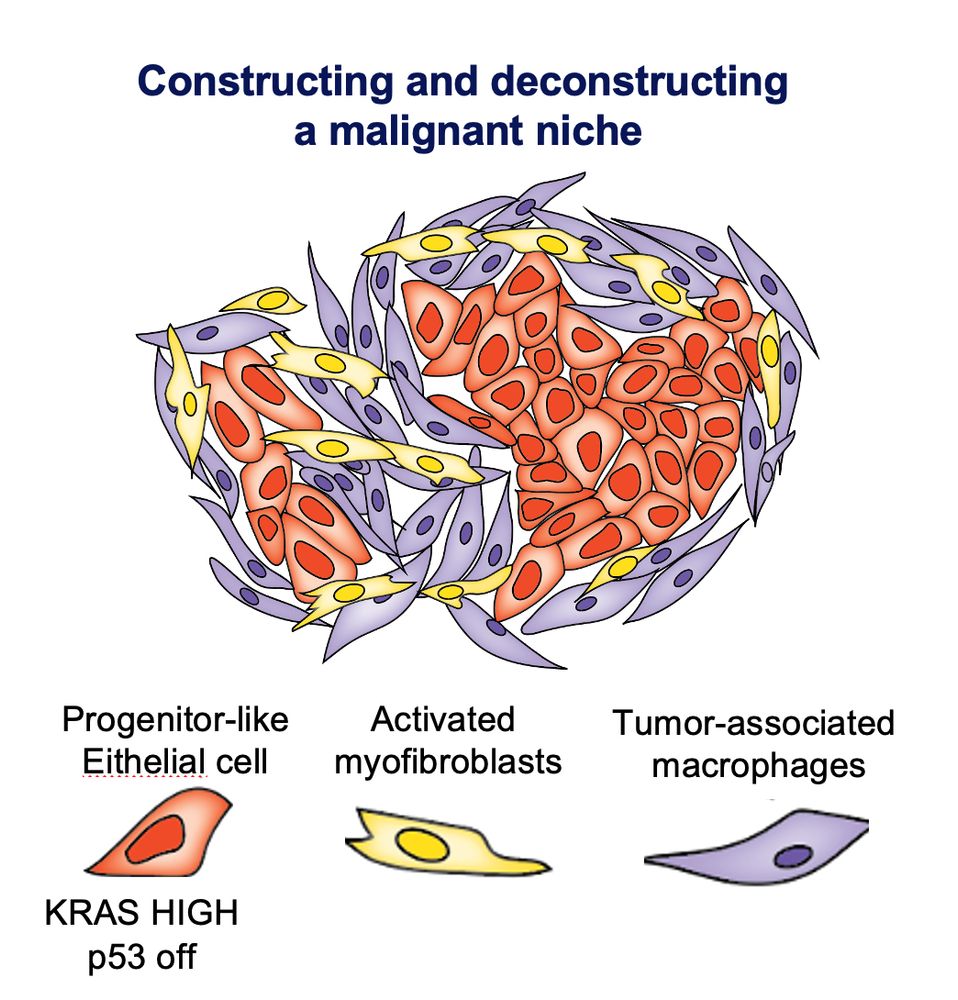
July 3, 2025 at 2:22 PM
12) In summary P53 is a guardian of plasticity. Its loss loss promotes malignant progression by enabling epithelial plasticity and immune evasion. p53 activation or KRAS inhibition removes progenitor cells and dismantles their tumor-like niche.
11) Loss of p53 allows for the stabilization and progression of the malignant niche, allowing the progenitor cells. to persist and progress to more mesenchymal states and for their accompanying niche to stabilize and expand in size ->
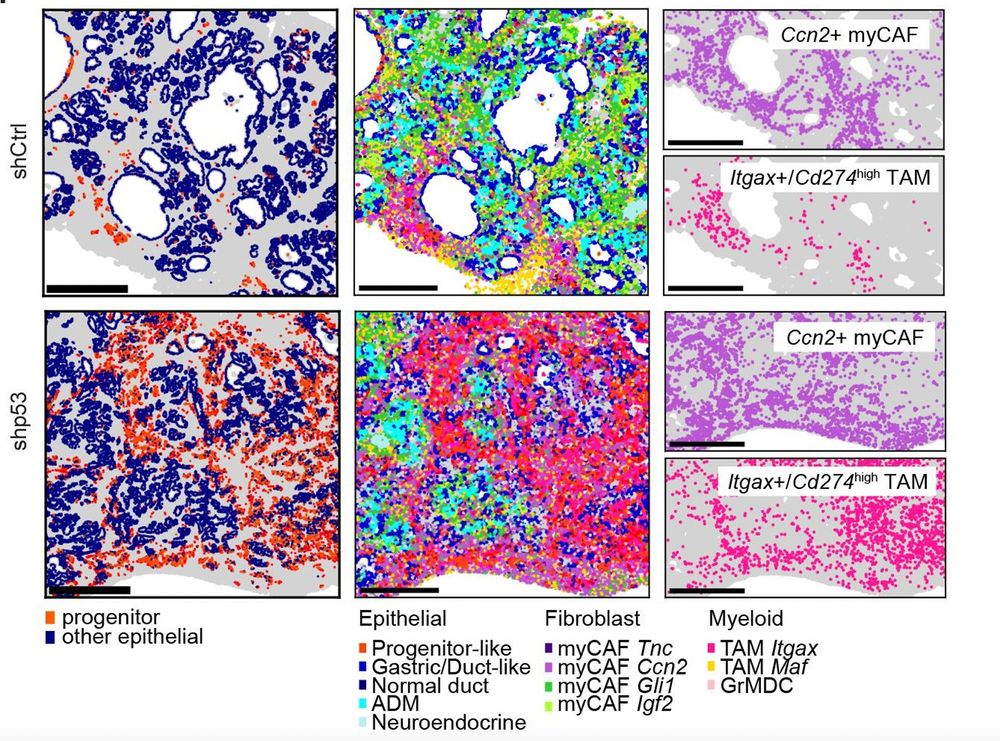
July 3, 2025 at 2:20 PM
11) Loss of p53 allows for the stabilization and progression of the malignant niche, allowing the progenitor cells. to persist and progress to more mesenchymal states and for their accompanying niche to stabilize and expand in size ->
10) The progenitor state and its niche are dependent on KRAS signaling. Inhibition of KRAS via drug blunts the progenitor state and dismantles their surrounding tumor like niche ->
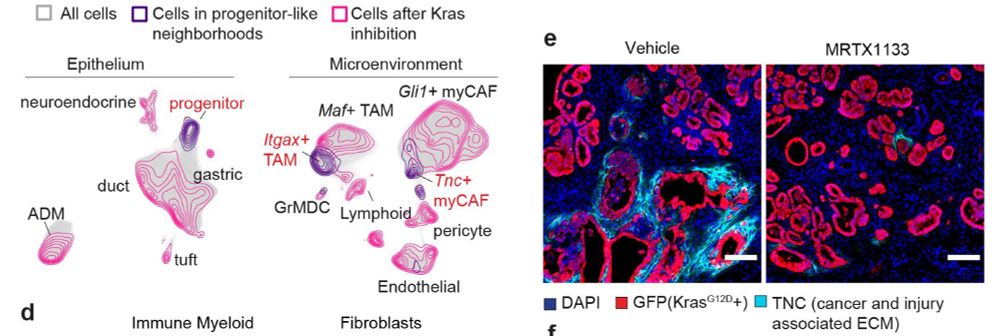
July 3, 2025 at 2:15 PM
10) The progenitor state and its niche are dependent on KRAS signaling. Inhibition of KRAS via drug blunts the progenitor state and dismantles their surrounding tumor like niche ->
9) Thus the progenitor states orchestrates tissue remodeling of self reinforcing tumor like niches through robust feedback loops among cell compartments ->

July 3, 2025 at 2:09 PM
9) Thus the progenitor states orchestrates tissue remodeling of self reinforcing tumor like niches through robust feedback loops among cell compartments ->
8) Bi-directional cell-cell communication changes along this axis, enable new modes of communication between all cell compartments in the niche ->
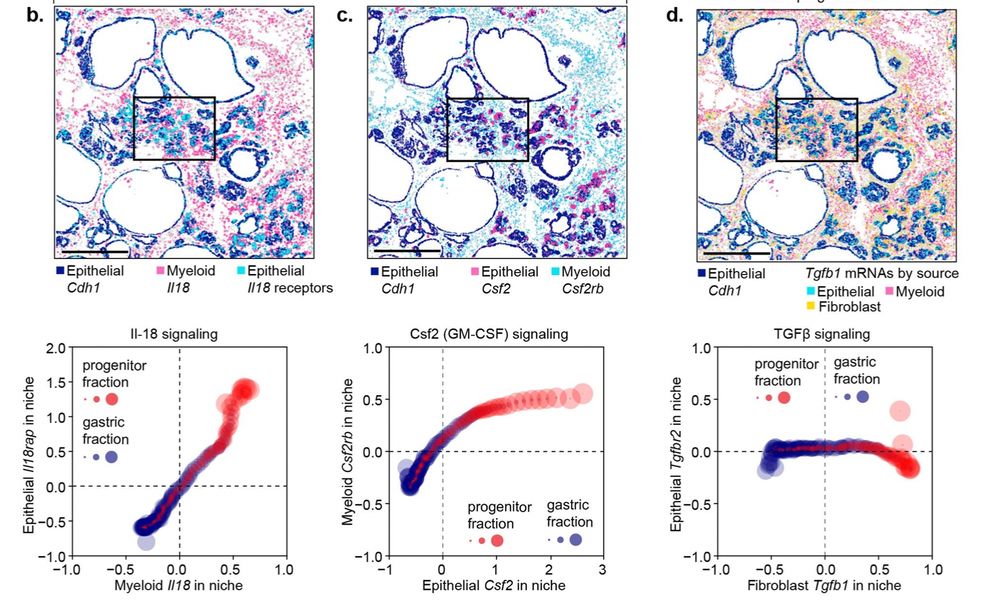
July 3, 2025 at 2:05 PM
8) Bi-directional cell-cell communication changes along this axis, enable new modes of communication between all cell compartments in the niche ->
7) This tissue remodeling trajectory culminates in progenitor cells residing with niches abundant in activated fibroblasts and immunosuppressive myeloid cells reminiscent of advanced PDAC ->
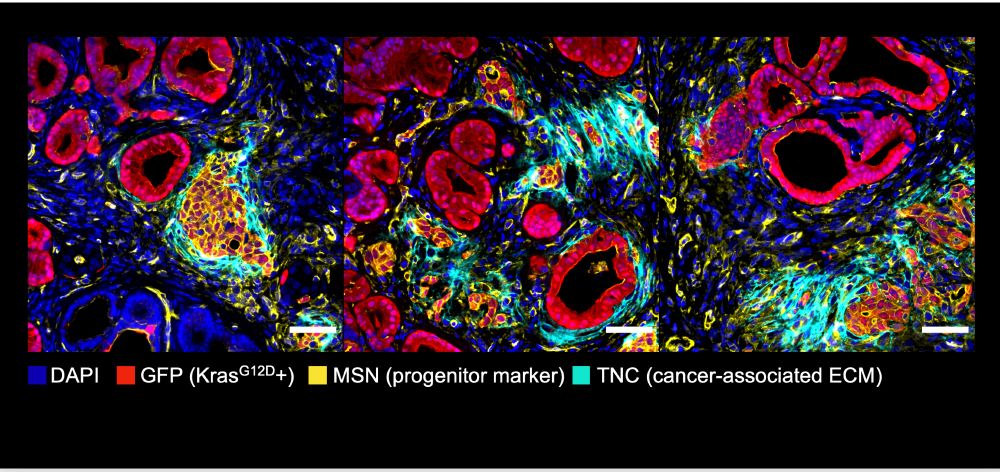
July 3, 2025 at 2:01 PM
7) This tissue remodeling trajectory culminates in progenitor cells residing with niches abundant in activated fibroblasts and immunosuppressive myeloid cells reminiscent of advanced PDAC ->
6) We found coordinated changes in gene expression across multiple cell type compartments along this axis, including changes in expression of cell-cell communication genes. Just defining a pseudo-time of niche remodeling from a single spatial snapshot ->
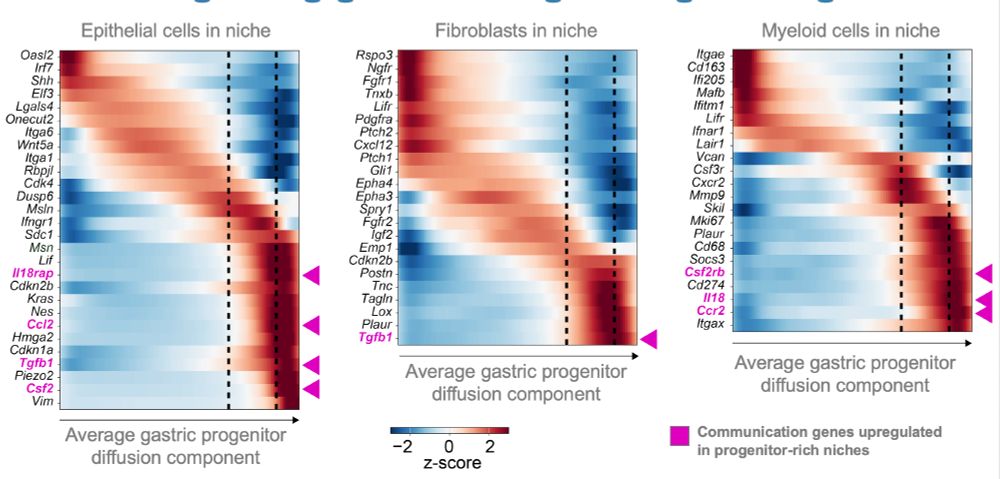
July 3, 2025 at 1:56 PM
6) We found coordinated changes in gene expression across multiple cell type compartments along this axis, including changes in expression of cell-cell communication genes. Just defining a pseudo-time of niche remodeling from a single spatial snapshot ->
5) To track this remodeling we anchored spatial neighborhoods (niches) around epithelial cells, placed these niches the gastric to progenitor axis based on their mean epithelial state and characterized how all other TME states change along this axis ->
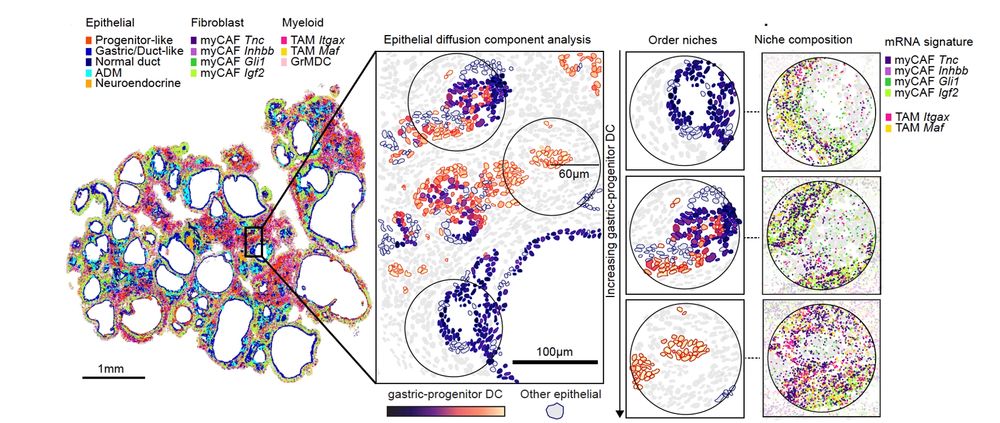
July 3, 2025 at 1:51 PM
5) To track this remodeling we anchored spatial neighborhoods (niches) around epithelial cells, placed these niches the gastric to progenitor axis based on their mean epithelial state and characterized how all other TME states change along this axis ->
4) The gastric to progenitor axis is the strongest axis of variation among epithelial pre-malignant cells. Thus we collected Xenium data to understand the tissue remodeling that occurs along this axis ->
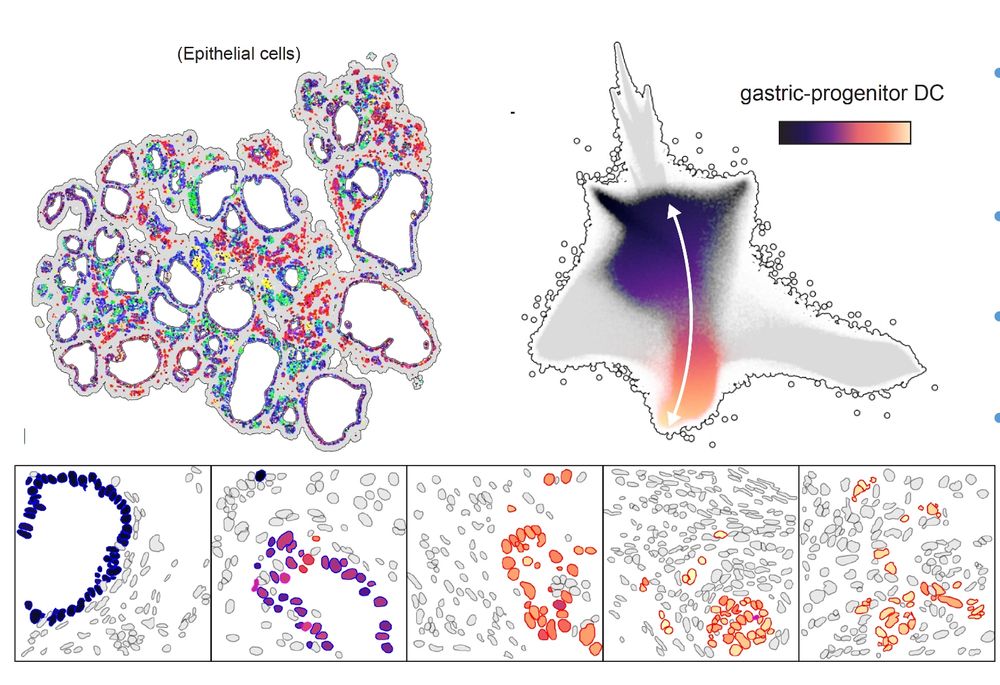
July 3, 2025 at 1:48 PM
4) The gastric to progenitor axis is the strongest axis of variation among epithelial pre-malignant cells. Thus we collected Xenium data to understand the tissue remodeling that occurs along this axis ->
3) These progenitor cells accumulate in disorganized lesions upon inflammation and are reminiscent of highly plastic cells found in normal regeneration. Thus we find an additional role for P53 as putting the breaks on plasticity and keeping it in check ->
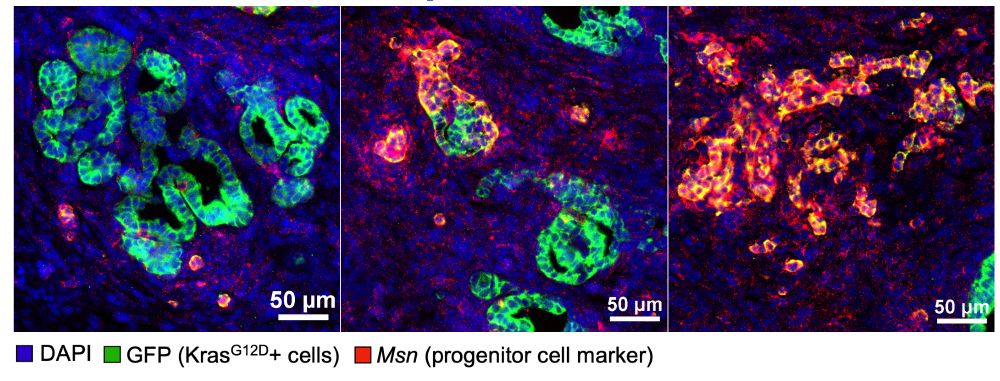
July 3, 2025 at 1:26 PM
3) These progenitor cells accumulate in disorganized lesions upon inflammation and are reminiscent of highly plastic cells found in normal regeneration. Thus we find an additional role for P53 as putting the breaks on plasticity and keeping it in check ->

